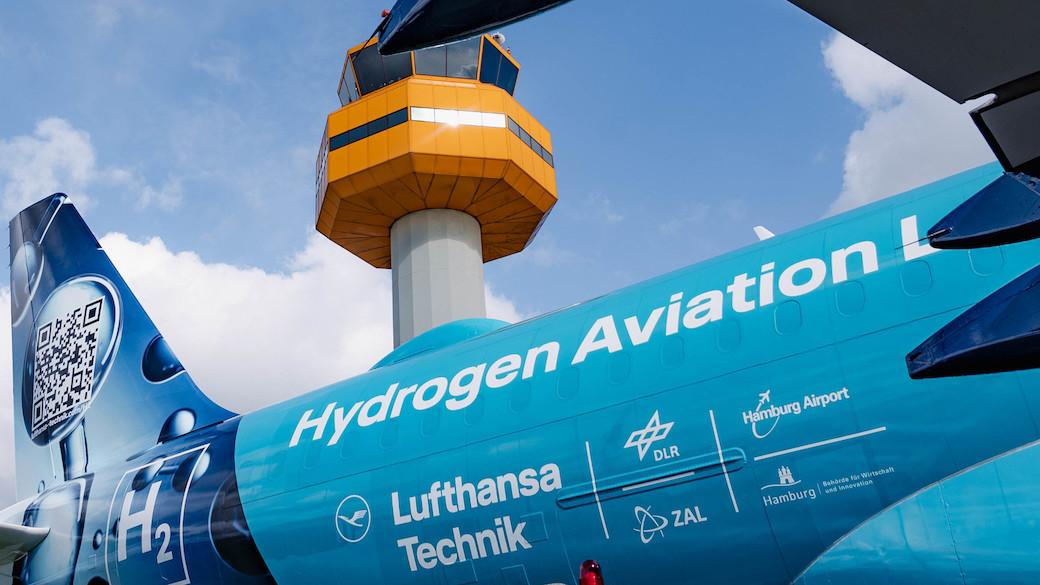
Lufthansa Technik has converted a decommissioned Airbus A320 into a hydrogen field laboratory to test maintenance and ground-based processes in preparation for hydrogen-powered flight.
The project, which is being funded by Hamburg’s Ministry of Economic Affairs and development bank IFB Hamburg, is a partnership among Lufthansa Technik, Hamburg Airport, German aerospace center DLR and the ZAL Center for Applied Aeronautical Research.
Over the coming months, the Lufthansa aircraft, which was operated for 30 years as D-AIQF, is scheduled to be fitted with a series of hydrogen components, including test systems, an internal tank for liquid hydrogen (LH2) and an onboard fuel cell. These will be paired with supporting ground-based hydrogen infrastructure.
The A320 is no longer considered airworthy, so it will be towed to various locations at Hamburg Airport to allow research to be conducted into integration of hydrogen refueling into an existing airport infrastructure. The research is expected to include studies of refueling times and processes; best practices to avoid overfilling and waste; prevention of ice build-up on components and surfaces; hydrogen gas leakage and recovery; safety and fire hazards; inerting of stored hydrogen; and training requirements for ground and maintenance personnel.
For example, the partners say LH2 refueling for a long-haul flight with current technology could take several hours. “Given the pressure on aircraft turnaround times in the airline industry, this would be clearly impractical. The hydrogen aviation lab is designed to address this and many other areas of research,” they say.
A digital twin of the A320 will also be created for use in simulating, developing and testing predictive maintenance methods for hydrogen-powered aircraft systems and components.
These preparations are expected to pave the way for the handling and maintenance of hydrogen-powered aircraft, which are anticipated to enter service in the middle of the next decade.
